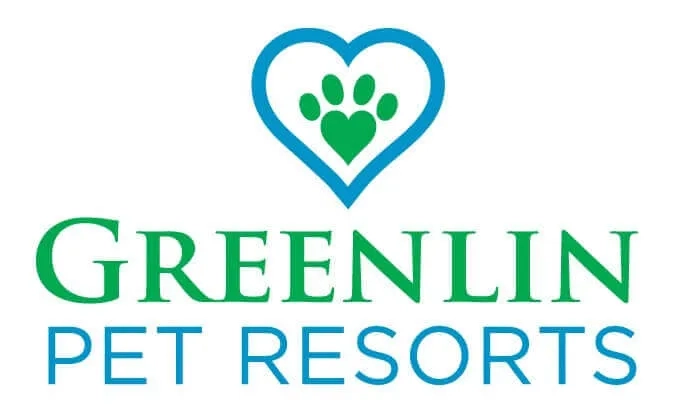Got a New Dog During Quarantine? Here’s How to Start the Relationship Off on the Right Paw
Billions of people’s routines were disrupted by recent global changes, and it also cut off their access to places that served as vital emotional outlets. In response, many people turned to in-home comforts, and for millions that meant one thing: getting a new dog!
Whether adopted as a puppy or as a rescue adult, millions of dogs found new homes during the height of the coronavirus quarantine. Countless animal shelters reported empty cages for the first time in their history, providing a rare and much-needed feel-good story amidst all the uncertainty.
For families with furry new members, this is great news! But it also means a whole new set of responsibilities and concerns, some of which are unique to the unprecedented situation we still find ourselves in.
If you’ve recently adopted a new dog, here are some top areas of concern you should consider as you and your new family member get used to one another. Thinking through and addressing each one can dramatically increase the chances that your family and your new dog will have a long, happy, fulfilling life together, no matter what obstacles come your way.
Dog Socializing Is a Must, Even During Social Distancing
Just like our human children, we want to provide our furry friends with the emotional tools to flourish in nearly any situation. However, a major consequence of the situation we find ourselves in now is that newly adopted dogs will get used to a very specific routine where they only encounter a few very specific people.
While this stability and familiarity are important for new dogs to get comfortable in a new situation, it also sets them up for uncomfortable surprises.
As restrictions are lifted and people get back to the normal life they were used to, dogs may suddenly find themselves in unfamiliar situations with unfamiliar people. This can cause anxiety, along with the possibility of health problems, behavior problems, or just a generally decreased quality of life. Because of this risk, socialization is critical, especially for puppies.
“Dogs that are appropriately socialized as puppies are less likely to exhibit behavioral problems as adults, including aggression and fearfulness,” writes Veterinary Medicine: Research and Reports. “They are more likely to engage in positive social behaviors with humans, and can learn how to play games with humans better than dogs without proper socialization.”
Socialization includes interactions with other people and other dogs. Don’t pass up the opportunity to have your dog interact with new people outside the circle of family and friends you’ve been seeing. Be aware of your own anxieties during these interactions, and try to project calm and confidence to your pet to encourage acclimation. When possible, let these new people reward your pup for socializing with a treat, petting, or praise.
For pet-to-pet socialization, arrange playdates as well as visits to local dog daycare centers in your area. Letting your pet interact with other dogs while supervised by someone else gives them the opportunity to get used to unfamiliar situations and greet them as a reward, not something to be wary of.
Dog Training Can Establish Early Behaviors and Boundaries
Just like being at a new job, your first few weeks with your new pet set the tempo and expectations for interactions to follow. You and your dog both have to get a feel for each other’s idiosyncrasies, but your dog in particular has to have clear boundaries established as to what behaviors are ok and which are not.
Addressing pet training is especially critical when we’re busy with things at home, like teleworking, dealing with children out of school, and having fewer options for out-of-home entertainment. Put simply, things can get tense, and if you don’t have a playbook in mind for dealing with unwanted pet behaviors, your stress may affect you and your new dog’s relationship. Even occasional expressions of anger or yelling can imprint in your dog’s memory, so knowing how to handle adverse behaviors mindfully and proactively is key.
Dog training can help establish a foundation of good behaviors for your new adoption (at any age!), and your trainer can provide tailored advice for managing the pet at home based on the things they observe. With this information in hand, you and your dog can set some “ground rules” for living together that promote a happier, calmer life together — even when things get stressful!
Quarantine Schedules Can Set Pets up for Separation Anxiety
New adoptions are blessed to be homed during a period when they get to soak up nearly infinite attention. Thankfully for us, the situation won’t last forever, but this can mean a rude awakening for your pet.
Separation anxiety is a major source of pet behavioral problems, especially in pets that are well-behaved in all other circumstances. The ASPCA notes that even the routine behaviors of leaving — such as getting dressed, picking up keys, etc. — can be enough to trigger stress in your dog’s mind. The key to getting around these dog behaviors, they say, is to recognize them and gradually work through them as a team. Professional help may also be needed.
One technique we recommend is to show your dog that not every departure means they’re being left alone. Leaving the pet with a treat-stuffed toy, having others come watch them, taking them with you on your trip, and bringing them to a place they enjoy — like a dog park or doggy daycare — can show your dog that time spent apart is time that can still be enjoyed.
Make Your Dog’s Well-Being a Priority for Your New Relationship to Flourish
Every dog is different, just like every person. But they can all benefit from being introduced to newness, getting stimulation in a variety of situations, and learning to be comfortable away from their favorite person.
If you are interested in ways to improve your dog’s life, especially as you get back to your regular routine, then don’t hesitate to look for resources available in your community.
With six locations around the Harrisburg region, including a brand-new 10,000 square feet facility near Hershey, Greenlin Pet Resorts is here to provide your newly adopted dog with everything they need to become better-adjusted to their new house and the big, wide world around it. Contact us if you have any questions or want more information about dog training, dog daycare, dog boarding, bathing, and more.

